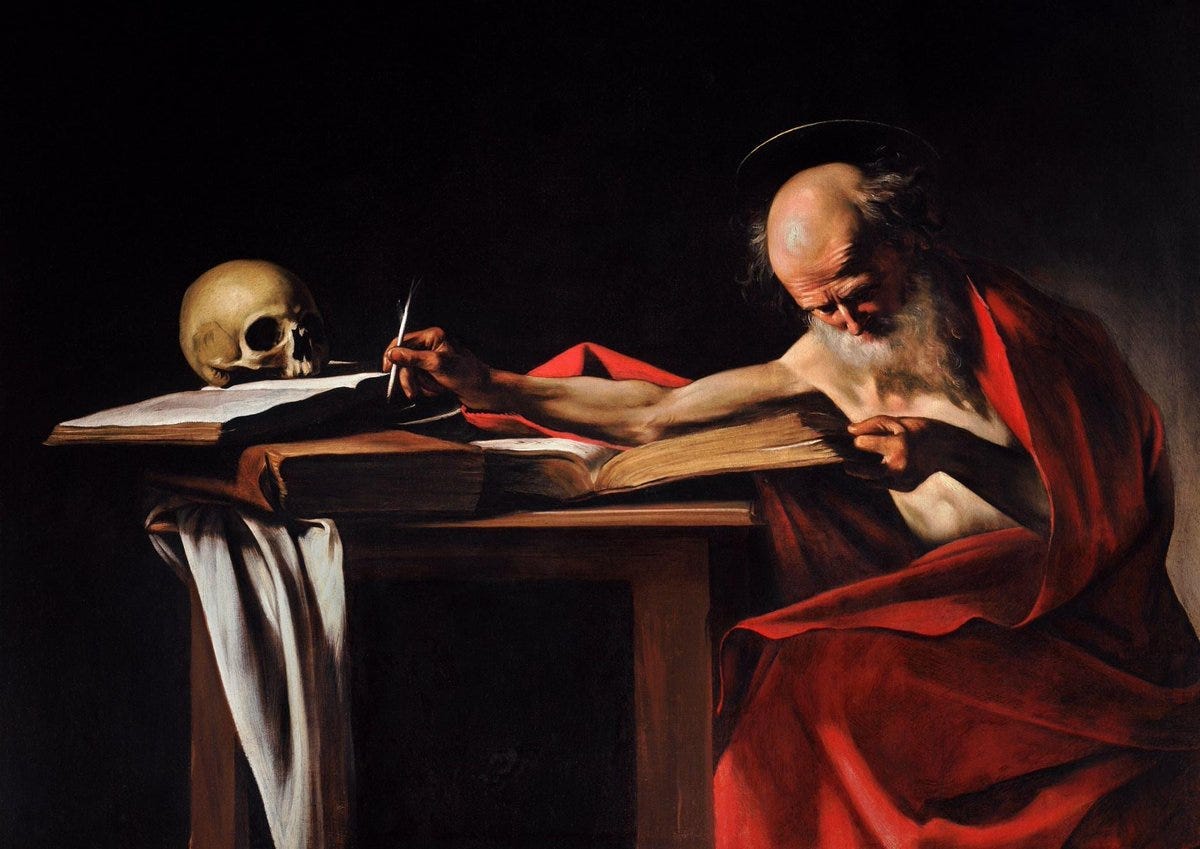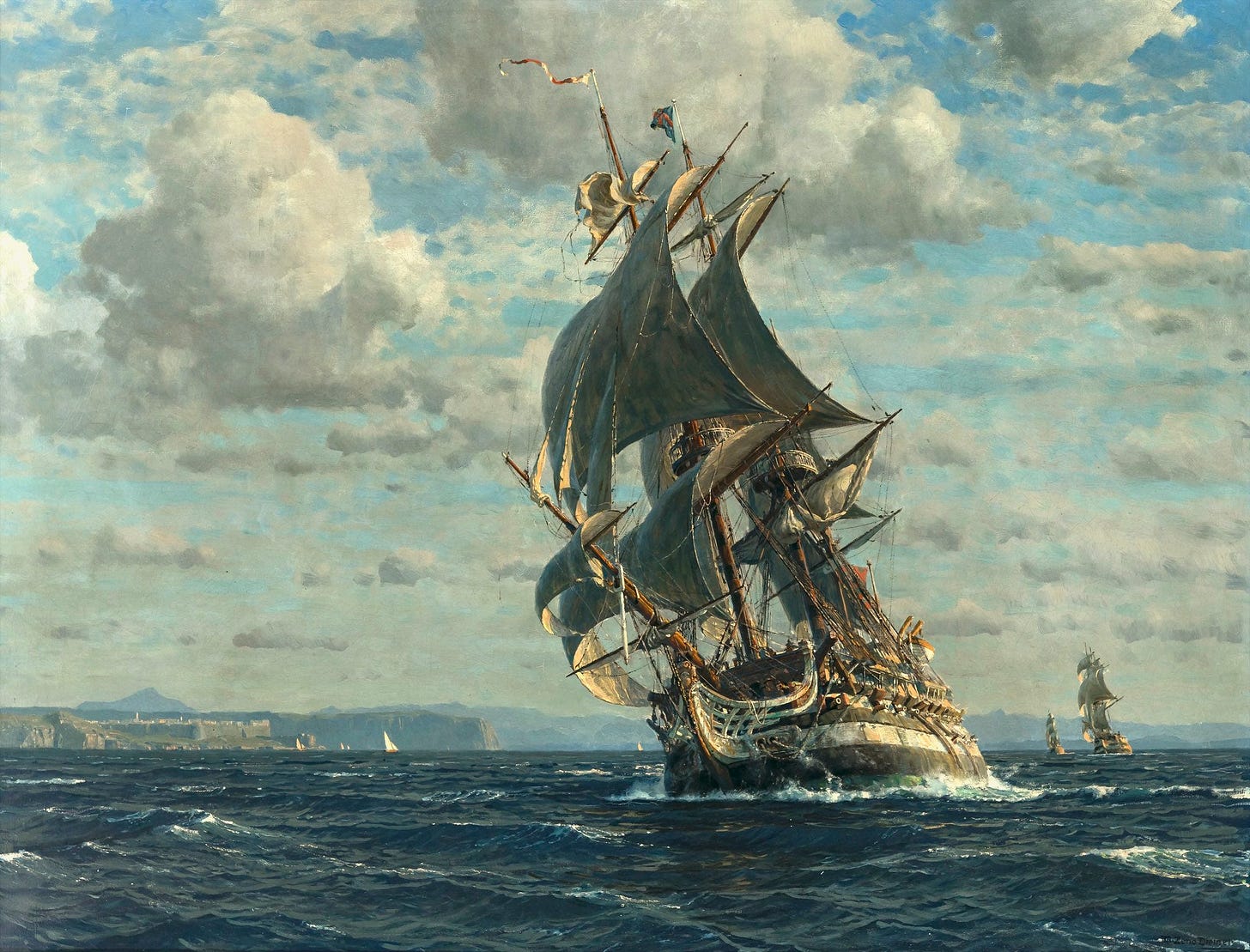The Five Moments That Forged the West
From Athens to the Industrial Revolution

Dear Readers,
Today, I wanted to discuss What is the West?, a short and incisive work published in 2004. In just 150 pages, French political ideas historian Philippe Nemo explains the five historical processes behind the U.S. and Europe’s technological and economic takeoff from the mid-second millennium onwards. There’s no western self-congratulation in Nemo's approach; rather, it's a quest to understand the foundational moments in the history of the West.
This article is no substitute for reading the book—which I highly recommend—but it does provide a summary of the five key processes the historian identifies as the roots of our civilization’s uniqueness. Let’s take a closer look at them.
1. The Greek Miracle: The Invention of the City-State, Freedom under the Law, and Science
Nemo points out that the Greek city-state marked an unprecedented revolutionary leap. For the first time in history, power shifted from the secrecy of the royal palace to the public square—the agora. This was the birth of the political sphere: public matters were debated by citizens, which presupposed their equality before the law and the use of reason to persuade (thus promoting the rise of science). Laws were no longer mystical or religious in nature but human constructs, which meant they could be freely amended by people.
“Through these innovations, the Greeks established the principles of rule by law and individual freedom, which became the civic foundation upon which modern constitutional states would be built. Once citizens were required to obey only a general, equal, and anonymous rule—rather than a personal, discretionary command from a king—and once the rule was public, known in advance, certain, and stable, citizens always knew how to act to avoid coercion. They had clear, reliable means to foresee what was lawful or unlawful, which allowed them to take control of their own lives, decide their activities independently, and become free beings. The civic formula invented by the Greeks thus created individual freedom in the sense it would always be understood in the West.”
2. The Roman Miracle: The Invention of Law, Private Property, the “Person,” and Humanism
Roman law laid down the foundations of concepts we use every day, including personal law (inheritance, family, marriage), property law (ownership, leasing), and obligation law (contracts, sales). Through these concepts, the Romans introduced the notion of private law, which precisely defined what belongs to "you and me."
The result was transformative: by creating private law, the Romans invented the concept of the individual human person, whose status is legally defined and protected. This would later become the basis of what we would call European humanism during the Renaissance.
“The Greeks had invented 'government by law,' but they did not fully develop the legal framework. In the small, ethnically homogenous Greek city-states, law remained largely unwritten (which is why Greek law is so poorly documented). However, if law is to make peaceful and fruitful cooperation among people possible by clearly delineating what is mine and yours, it is obvious that it will fulfill this role all the more effectively the more precisely these boundaries are defined.
It was this refinement that Roman magistrates and jurists accomplished. In just a few centuries, they built an advanced system of private law unparalleled by any previous civilization. In undertaking this work, the Romans completely transformed the concept of humanity and the human person.”
3. The Invention of the Idea of Progress by Judeo-Christianity
Judeo-Christian thought introduced a fundamental concept: progress. By breaking away from the cyclical view of time held in antiquity, the Bible introduced a forward-oriented timeline—starting with Creation and moving toward an "end of times" when "all things will be made new" (Revelation).
“It seems to me that it was the Judeo-Christian ethic of love or compassion, which introduced a new sensitivity to human suffering, that fostered a unique spirit of rebellion against the idea of the normality of evil. This spirit—unparalleled in previous history—set into motion the dynamic of historical progress.”
4. The Papal Revolution of the 11th–13th Centuries
In the 11th century, the promise of Christ’s swift return remained unfulfilled after a thousand years. A new Catholic doctrine began to take hold: the belief that the world had become too corrupt and needed to be transformed to become worthy of Christ's return.
To transform the world, however, one must first understand it. Thus, the Church encouraged the use of reason, making Greek science and Roman law a duty of study. This Papal Revolution was a synthesis of Athens, Rome, and Jerusalem, aimed at transforming the world.
5. The Rise of Liberal Democracy
The gradual emergence of liberal democracy—the political system common to today’s Western nations—from the 18th century onward was built on the four previous civilizational foundations: individual freedom, the rule of law, the primacy of reason, and the idea of progress.
Institutions that protect political freedoms (freedom of thought, freedom of the press, an independent judiciary), scientific freedom (academic freedom, freedom to innovate), and economic freedom (the right to enterprise and respect for contracts) have gradually been consolidated. All of which made the U.S. and Europe the cradle of the Industrial Revolution.
Conclusion
Some of these five processes also influenced other civilizations, but only the West was shaped by all five—and by none other. According to Nemo, this unique combination explains the U.S. and Europe’s remarkable rise from the 18th century onward and the development of a distinctive mindset.
This book is a must-read: in just 150 pages, Nemo traces the history of Western civilizational achievements. A valuable resource for understanding who we are.
Find all previous issues of Why the West on the homepage of the site and on the Why the West’s YouTube channel. You can also follow me on X (ex-twitter).








